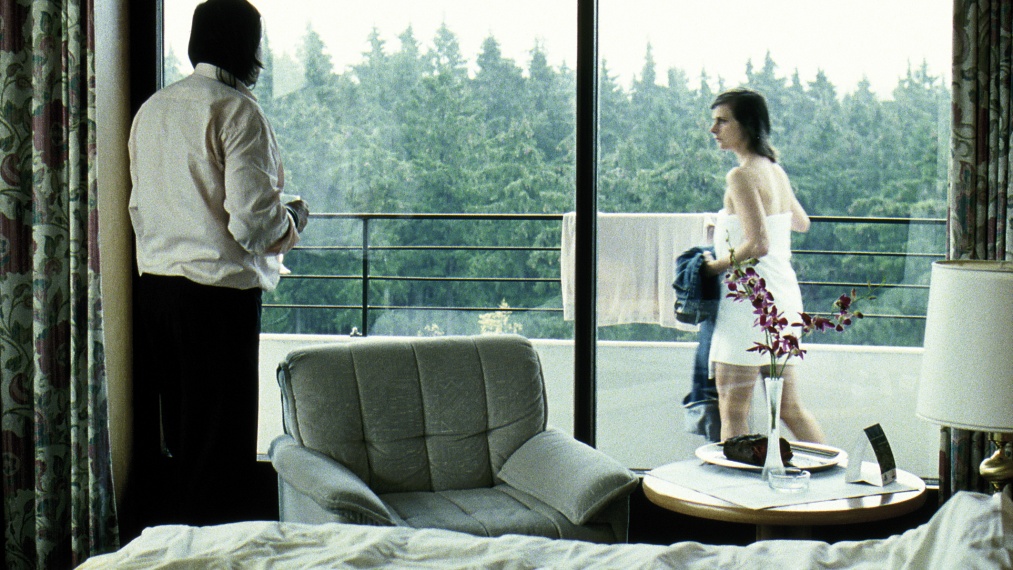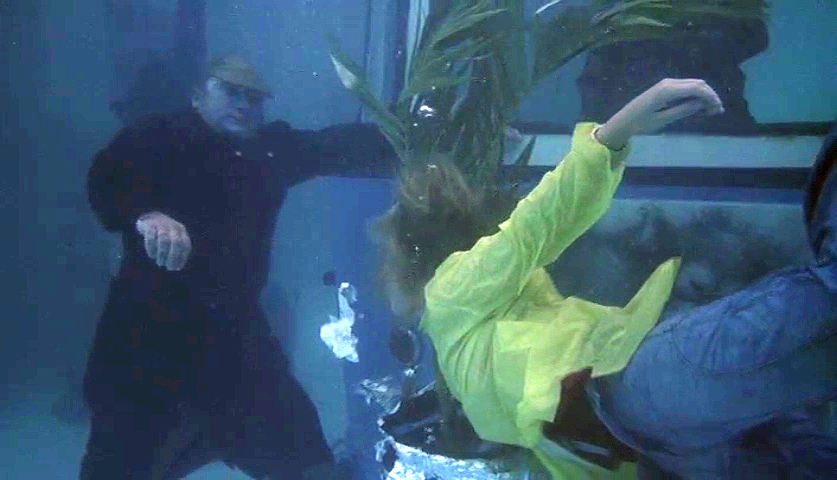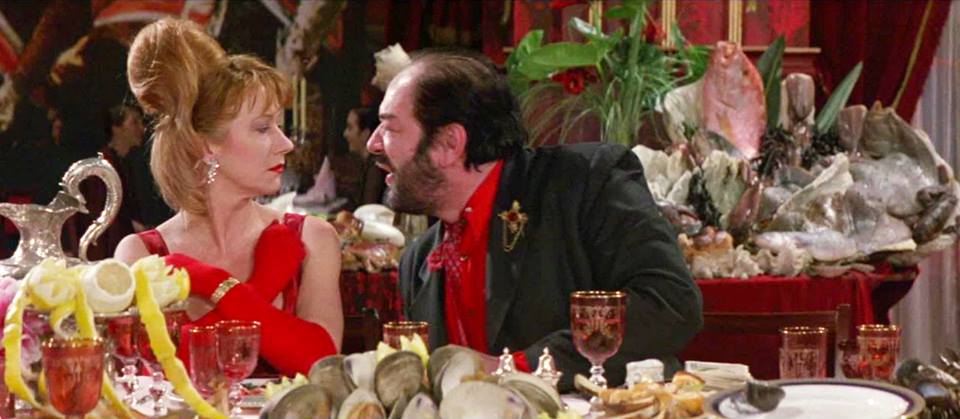The Cook, The Thief, His Wife and Her Lover (1989) dir. Peter Greenaway
Gangster boss Albert Spica has recently taken over ownership of gourmet restaurant La Hollandaise. He dines there every night with his wife Georgina and various people of his gang. Head chef Richard is not happy about working for the brutish Albert leading to tension between them. Georgina is unhappy in her marriage, and starts an affair with Michael, a regular at the restaurant. They have sex in the toilet, the kitchen, the pantry, right under the nose of Albert.
The Cook, The Thief, His Wife and Her Lover could almost be called an anti-intellectual movie, because the focus isn't on subtext, but rather on pure raw emotion. It might even be hard to call the characters for real characters, because they rather just personify emotions. Albert is rage and violence, while Georgina and Michael are lust, desire and love. There's no pretention in the characters, they just give in to their emotions immediately. In that way the movie is very raw. That the movie is raw and emotional is definitely something that Greenaway has not just applied to the characters, but to the whole film. In the opening scene we see Albert and his brutes torturing a man and dumping literal shit over him. A very visceral scene, and sets the tone for what is to come, and it's not the last time Greenaway tries to disgust the audience or upset a few stomachs during the film. Physical disgust is one of the most pure emotions you can feel, it's engrained deep in probably every animal, and that's how Greenaway starts his film, and ends up. Greenaway wants to be provacative with some of the choices that he's making in this film. But the film is more than shit, boobs and rotting meat. Greenaway wants to get an emotional response from the audience, the same way the characters are acting fully on emotion, and these provacative elements are a part of that. But this isn't like a snuff film where outrage and disgust are the whole purpose, there's more to it.
The most striking thing about the this film is the way it looks. It's lavish to an extreme degree. Nothing in it is based on reality. Everything is enhanced in the same way that it might be in a Baroque painting. The set design, the use of colour and picture composition has a clear root in paintings rather than in film. You can stop the film at random, and there's a good chance the still produced could work as a stand alone painting. There might not be a lot of depth to the characters, but there's so much depth to the visual side. Someone more well versed in the world of paintings than I am can probably more accurately pin point Greenaways inspirations and references for this film. Even without an art degree, there's still lots of things to appreciate about the visuals. There's so much eye candy, so many little jokes and little things going on with colours, and the set design and costumes that you don't have time to pick up on it all. I liked how Georgina's clothes changes colour depending on what room she's in. Generally red in the restaurant, green in the kitchen, white in the bathroom, matching the colour of those rooms.
The Cook, The Thief, His Wife and Her Lover is perhaps best describe as an experience. You have to go along with this crazy world that it takes place in, but if you do it's a wild ride. A good ride.





